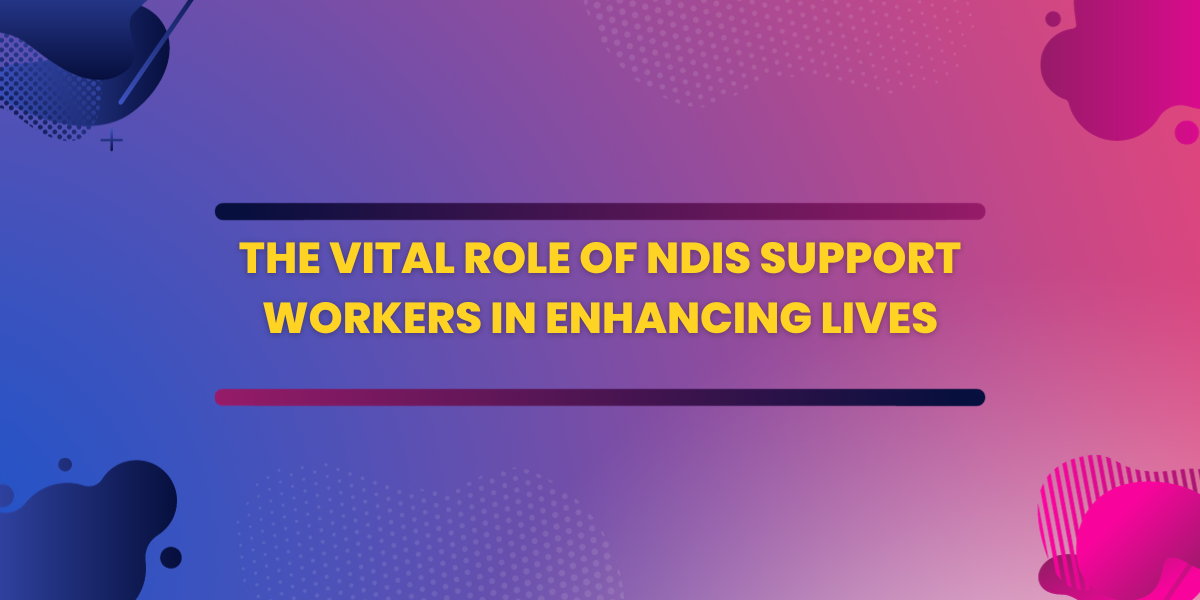In the pursuit of creating an inclusive and supportive society for individuals with disabilities, the National Disability Insurance Scheme (NDIS) has emerged as a groundbreaking initiative in many countries. Central to the success of the NDIS are the dedicated individuals known as NDIS support workers. These unsung heroes play a pivotal role in transforming the lives of those with disabilities, making a profound impact on their well-being and independence.
Understanding the NDIS
The NDIS is a government-funded program designed to provide support and services to people with disabilities, enabling them to live more fulfilling and independent lives. It operates on the principle of individualized funding, meaning that services are tailored to the specific needs and goals of each participant.
The Multi-Faceted Role of NDIS Support Workers
NDIS support workers are the backbone of this transformative system. They are responsible for implementing the support plans created for NDIS participants, which can encompass a wide range of services and activities. These professionals are much more than caregivers; they are enablers, advocates, and companions on the journey toward greater independence.
1. Personalized Care and Support
One of the primary responsibilities of NDIS support workers is to provide personalized care and support to their clients. This includes assisting with daily activities, mobility, hygiene, and medication management. They ensure that individuals with disabilities can lead a dignified life with as much autonomy as possible.
2. Empowering Independence
NDIS support workers strive to empower their clients. Instead of doing things for them, they facilitate learning and skill development, encouraging individuals to become more self-reliant. They provide training in daily living skills, such as cooking, cleaning, and personal care, tailored to the unique needs of the participant.
3. Advocacy and Guidance
Support workers also act as advocates. They help individuals navigate the complexities of the NDIS system, ensuring they receive the services and funding they need. These workers often assist in preparing and updating NDIS plans, making sure that the services align with the participants’ goals and aspirations.
4. Emotional Support
Living with a disability can be challenging, and NDIS support workers offer emotional support and companionship. They foster a sense of belonging, encourage social engagement, and provide a listening ear. This emotional support is just as vital as the practical assistance they provide.
5. Promoting Inclusion
Support workers play a significant role in promoting social inclusion. They encourage individuals to participate in community activities, fostering a sense of belonging and reducing social isolation. By accompanying their clients to events and activities, they open doors to new experiences and friendships.
6. Flexibility and Adaptability
Every person with a disability is unique, and the needs and goals of NDIS participants vary greatly. Support workers must be adaptable and flexible in their approach, constantly tailoring their assistance to meet the evolving requirements of their clients.
7. A Sense of Purpose
For many NDIS support workers, their job is not just a profession; it’s a calling. They derive immense satisfaction from helping individuals with disabilities reach their full potential, and the relationships they build with their clients often become deeply meaningful.
In conclusion, NDIS support workers are the unsung heroes of the disability support system. Their dedication, compassion, and commitment to enhancing the lives of individuals with disabilities are instrumental in making the NDIS a success. Through personalized care, empowerment, advocacy, and emotional support, they contribute to a more inclusive and compassionate society, where everyone has the opportunity to lead a fulfilling and independent life. Their vital role deserves recognition and respect, as it is a testament to the power of empathy and support in transforming lives.




